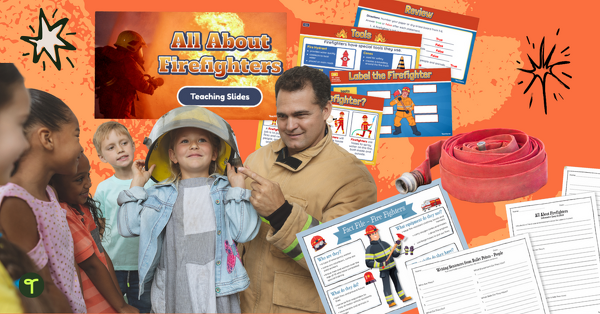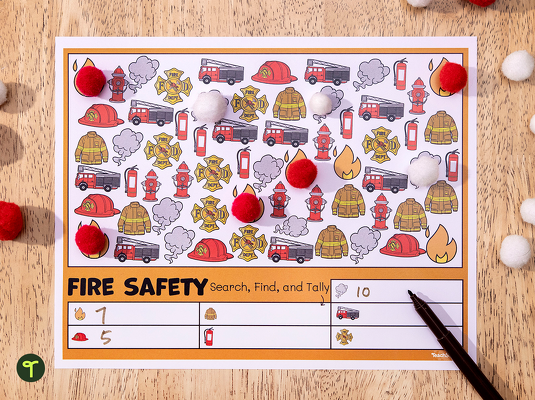There are many factors that might prompt you to think about changing schools when you’re looking for a new job in teaching. But how do you know when it’s right to take a job at a new school district? I’ve been through the search for teacher job and made the move, and you’re about to benefit from my experience!
After teaching at the same school for the first five years of my career, I made the decision to switch schools. I loved my colleagues, my school was close(ish) to my house, and the kids were familiar and relatively well-behaved… but I just wanted more. I was settled and comfortable in my role, but I wasn’t growing professionally. Unfortunately, my school didn’t provide many opportunities for me to do that, sending me scurrying for the teacher job listings.
I needed a new challenge.
When I decided it was time to move on, I was filled with exciting and anxious thoughts all at once. Moving to a new school can be just as daunting for a teacher as it is for a student. But as the old saying goes, life begins at the end of your comfort zone!
Once you’ve decided to take the leap, there are a few things you can do to help the transition to your new teaching job and your new school district both go as smoothly as possible and make it a move for the better.
Dos and Don’ts of Changing Schools for a New Teaching Job
Do: Get Involved
Teachers are so lucky; our jobs allow us to expand our family and be welcomed into a close-knit community like no other. I learned that you really need to jump in with both feet when you take a new job as a teacher in a new district.
Become actively engaged in your new school community by getting involved from day one. Why not go along to weekend sports events, take on extra-curricular responsibilities, and put your hand up to help organize school functions?
By showing you are happy to be involved, you won’t be the ‘new kid on the block’ for long!
You’ll quickly establish yourself as a familiar and approachable teacher to students, parents, and colleagues.
Don’t: Fear Change
If you’ve been at your past school for a long time (particularly if it’s your first school!) change can seem scary.
Embrace change for what it is, a chance to grow and challenge yourself professionally. Don’t go to work every day telling people how things were “at my old school…”.
By all means, bring your experience and ideas to your new environment, but be open to new ideas and ways of teaching and learning. Ask your colleagues for ideas and collaborate with your teaching partners. Sharing your knowledge together is the best way to continually improve your practice!
Do: Form Your Own Opinions
We’ve all been there at the beginning of a new year, and a new class. You’re approached by a fellow teacher and told: “Watch out for that one, he/she is trouble/needy/has overbearing parents.” The benefit of moving to a new school for a new job is not having those pre-conceived notions about a certain student or certain grade. So don’t lose that!
It can be easy to have your opinion swayed by others, but is that really fair on the student in question?
Give them a chance, get to know them, and you may be surprised. Don’t believe everything you hear through the grapevine… and that goes for colleagues as well!
Don’t: Be Underprepared
Where possible, get into your classroom nice and early. The earlier before term starts the better!
Knowing what space you’ll be working with is the best way to ensure you’re ready for the first week. You’ll know the furniture you have available, the resources you’ll be able to access, and the technology you’ll need to juggle. Log into Google Classroom or Schoology, set up your wireless printer, get that smartboard in order … do whatever you need so you’re not caught out on the first day trying to print that last-minute class list!
You’ll also want to walk around the school and really orient yourself to the school grounds. Memorize routes to and from your classroom to places such as the cafeteria and library. You’ll thank yourself later when you have 30 students trailing behind you and you can confidently lead them from A to B!
Do: Learn the Rules
There are universal unspoken rules that most schools follow: Don’t run in the hallways and of course, raise your hand to ask a question!
When it comes to enforcing these rules, however, it’s important that you educate yourself on what exactly is expected of the students.
How many warnings does a student receive before they’re sent to the office? At what point should you request a parent interview? Knowing these things can save you a lot of hassle, especially when dealing with a tricky student. Other areas where it’s important to understand the ground rules include homework, lunch and food guidelines, and absenteeism. Getting these rules solidified in your mind will help you be more confident with students and their families.
Don’t: Isolate Yourself
Unless you’re the world’s most confident extrovert, it can sometimes take a few weeks to form new friendships and connections in a new workplace!
Help speed up the process by actively socializing with your new colleagues:
- Make an extra effort to eat lunch in the teacher’s lounge. Even if you have to walk all the way to the other end of the school!
- Go and have a chat with the main office staff. They usually are the backbone of the school office and will appreciate your interest in getting to know them!
- Walk around the school during lunchtime, and have a chat with the students. Get to know more than just the kids in your class and help them get to know you.

Do: Create a Solid First Impression
On your first day in your brand new classroom, you no doubt will want to project an aura of authority and confidence.
There is absolutely nothing wrong with that!
Showing the students that you are confident and knowledgeable will help them trust you to lead them through their learning journey. Your confidence and authority will come with experience, but if you don’t have that, fake it ’til you make it!
You will be full of nerves and anticipation as you greet your class, but don’t forget that a relaxed demeanor projects confidence. Ensure you are prepared for the day and be assertive with your directions.
This doesn’t mean, however, that you need to be a tyrant! Smile and share personal anecdotes with your students, let them see your quirky side. They will appreciate your authenticity and feel safer in your care.
Don’t: Put Too Much Pressure on Yourself
Repeat after me:
I am a professional, who has valuable experience in my field. I trust myself and my judgment in the classroom. Mistakes will be made, and they will be an opportunity to learn. I am a good teacher.
When you start at a strange new school, it’s easy to feel like you’ve gone right back to square one. You may feel like a fish out of water, and it’s easy to lose sight of how far you’ve come since graduating from university.
No matter how differently they do things, be gentle with yourself. Give yourself time to settle in and learn things – you would never expect a student to get it right the first time, so why place those expectations on yourself? Back yourself as a professional; remember, they wouldn’t have hired you for a teaching position if they didn’t like what you had to offer! When in doubt — add some affirmations around the classroom to remind you to be your wonderful self!







Comments